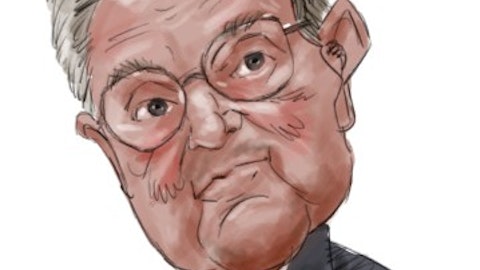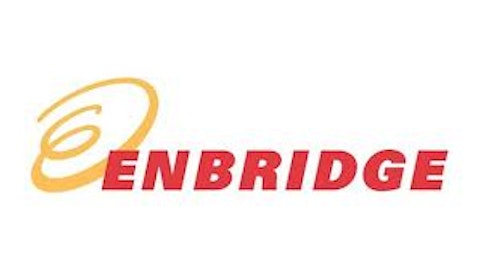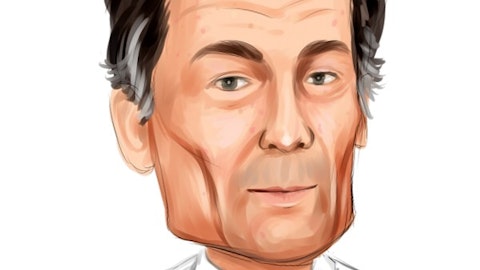High quality stocks offer a reasonable premium during market downturns and periods of heightened volatility, widening credit spreads, and steepening yield curves. We evaluate high quality constituents of the S&P High Quality Rankings Index, the stocks that have a record of sustainable long-term earnings power and solid growth and stability of dividends.
We continue our series of articles about high quality stocks that represent attractive income and value plays for prudent investors. This time our attention is focused on four industrial companies with market capitalization of at least $10 billion, an average dividend yield of 2.5%, and high returns on equity (ROE) or invested capital (ROIC).
Deere & Co. (DE) is the world’s largest manufacturer of agricultural and forestry equipment by revenue. It also produces equipment used in the construction, landscaping, and utility sectors. The company has a market cap of $31 billion. Over the past five years, Deere & Co.’s EPS and dividends grew at average annual rates of 16.6% and 15.3%, respectively. Analysts expect that EPS growth will average lower but still robust 10% per year for the next five years. The company boasts a ROE of 40% and ROIC of 11.4%. The company has reported strong revenues and net income, which have been boosted by higher unit sales, higher prices, and lower taxes. International growth has been especially robust. The current drought in the U.S. could have a modestly negative effect on Deere’s performance in the short-term; however, the long-term outlook remains upbeat. Moreover, analysts at Piper Jaffray recently upgraded the stock to overweight from neutral citing “strong summer delivery schedule.”
The company pays a dividend yield of 2.5% on a low payout ratio of 26%. Deere’s competitors AGCO (AGCO) and CNH Global (CNH) do not pay dividends, while rivals Caterpillar (CAT) and Kubota (KUB) pay comparably lower yields of 2.4% and 1.7%, respectively. With low forward P/E relative to industry and robust dividend hikes, the stock is a good value and dividend growth play. It is trading at $77.32 a share, down 1.5% over the past year. Billionaire Ken Fisher had more than $430 million invested in the company at the end of the first quarter.
Dover Corp. (DOV) is a $10 billion industrial conglomerate. It produces industrial equipment and components for energy, communication technologies, engineered systems and printing and identification markets. Over the past half decade, the company’s EPS and dividends grew at average annual rates of 9.1% and 11.2%, respectively. The company is expected to post similar average EPS growth each year for the next five years. It has a free cash flow yield of 6.1%, ROE of 16.8%, and ROIC of 11.8%. Lately, the company has seen strong revenue growth, especially in its communications technology and energy segments. While it has trimmed its revenue outlook for this year, the company is still projecting revenue growth between 8% and 10% over the past year. Acquisitions have been responsible for the lion’s share of Dover Corp.’s growth in recent years.
Dover Corp. is paying a dividend yield of 2.3% on a low payout ratio of 27%. Its competitors Cooper Industries Plc (CBE) and Ingersoll-Rand Plc (IR) are yielding 1.7% and 1.5%, respectively, while Weatherford International Ltd. (WFT) does not pay any dividends. On a forward P/E basis, the stock is undervalued relative to its industry and the company’s own historical metrics. It is also trading on a price-to-book and price-to-sales ratios below those of its industry. The shares are down 10% over the past year to the current $54.33. Ken Fisher had more than $440 million invested in the stock at the end of the first quarter.
CSX Corp. (CSX) is a $24 billion rail-based freight transportation company. Over the past five years, its EPS and dividends increased at 12.2% and 27.8% per year, respectively. Analysts forecast that the company’s EPS will expand at almost 9% per year for the next five years. The stock boasts a ROE of 21% and ROIC of 10.8%. Dwindling coal shipments have weighed on the railroad transportation companies’ revenues. However, freight volumes have been sustained by robust increases in shipments of automotive products, chemicals, natural gas and oil. In general, rail companies have benefited from higher oil prices as a cheaper alternative to trucking. As the cyclical recovery in the U.S. gathers steam in the coming period after the current soft patch, shipment volumes are likely to improve further.
The company pays a dividend yield of 2.5% on a payout ratio of 31%. Its peers Norfolk Southern Corp. (NSC) and Union Pacific Corporation (UNP) pay dividend yields of 2.5% and 2.0%, respectively. On a forward P/E basis, CSX Corp.’s shares are trading below the railroads industry. The stock is changing hands at $22.90 a share, down 7% over the past year. Among fund managers, quant king Jim Simons holds a stake in the company. Warren Buffett, who acquired another U.S. rail company, Burlington Northern Santa Fe Railway Company, called his investment “a bet on the country,” forecasting a robust recovery in the U.S. economy over the next five years and seeing value in railroads as “cost-effective and extraordinarily environmentally friendly way” to move goods.
Norfolk Southern Corp. (NSC) is another rail transportation company, a key competitor to CSX Corp. It has a total market cap of $24 billion. Over the past five years, the company saw its EPS and dividends rise at 8.8% and 17.6% per year, respectively. Analysts expect that Norfolk Southern’s EPS growth will accelerate to 13.5% per year for the next five years. The company boasts a free cash flow yield of 1.4%, ROE of 19.2%, and ROIC of 11.1%. As with other railroad companies, Norfolk Southern’s future growth depends on the vibrancy of the U.S. economic recovery, which Buffett sees as the most likely outcome.
The stock pays a dividend yield of 2.5% on a low payout ratio of 32%. The company’s peers pay similar dividend yields. The stock is currently trading at the same forward P/E as CSX Corp., below the ratio for the railroads industry. The stock is also undervalued relative to the industry based on the price-to-book, price-to-sales, and price-to-cash flow ratios. Over the past year, the shares are down 2%, to $74.18 a share. Value investor Barry Rosenstein is bullish about the stock.






